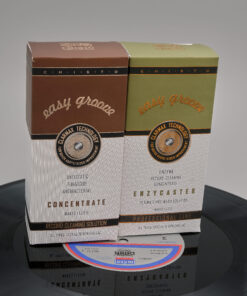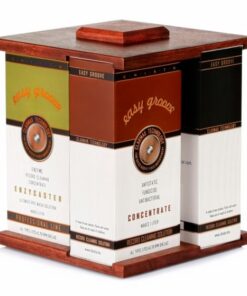World News
Q&A with Bill Schnee
Bill Schnee is a producer, Grammy Award-winning engineer, and author of Chairman at the Board—Recording the Soundtrack of A Generation.
What inspired you to write the book?
I’ve always loved telling stories, and had considered writing a book, but thought it was too self-serving. The tipping point came when a client encouraging me to write a book said that the music business was born in the 50s, grew up in the 60s, and peaked in the 70s going into the 80s. He said it was a very short time, a very iconic time—never to be repeated again—and you were there! Hearing that made me realize a book didn’t have to be, “I did this, then I did that.” Rather, I could tell stories about other fun things I had nothing to do with, like the cute story about Miles Davis. Read that in the book!
To be clear, this is not a “how-to” manual.
No, and I’m afraid some engineer types might be disappointed about that. I’ve written the book for anyone like me who loves music and records but hasn’t been as fortunate as I have to go behind the curtain. Early on I came to the conclusion that producing and engineering are servant’s roles…you’re there to serve the artist and his music. Beginning my career as an artist on the “other side of the glass” helped me realize that. I started recording by being thrown in the deep end of the pool with Three Dog Night and managed to swim.
Is your primary aim as an engineer to be mostly invisible at a session, or are there times when you need to step in more forcefully?
I definitely try to stay out of the way unless I see there’s a need that I can fill. It may be a sonic or even a musical suggestion. I think most people know that the musician in me is there waiting to contribute, and so I’m most often encouraged to do so.
What artist(s) surprised you most by the sheer breadth of his musical talent?
That’s an easy one…Barry Manilow. I was actually not a fan back in the day, but found quickly what an immense talent he really is.
The industry has changed. What do you miss most about the golden age in which you worked?
Before computers, an artist had to work in a recording studio with very expensive equipment where a group of musicians would all play together making the record. Today, “professional recording equipment” is within everyone’s reach, so most records are recorded in pieces in different people’s home studios. There’s something very special about the synergy of a group of musicians playing with and off each other.
In a career filled with so many achievements, what do you think was one of your greatest moments personally and artistically?
One that I would hope speaks to your audience is the Thelma Houston and Pressure Cooker direct-to-disc album (I’ve Got The Music In Me, 1975). That’s the album that brought direct-to-disc back in the modern era. Shortly before he died, I was proud when Doug Sax told me it was the most exciting record Sheffield ever made.
On Ringo’s self-titled album you ended up working with all of the Beatles on different tracks. How often did you pinch yourself during those sessions?
Those sessions were all fantastic, so I’m sure there were little black and blue marks all over me. For that record, Ringo’s mates had decided to pitch in and give him a leg up. When John came in to record his song, for the first and, I believe, only time after the group’s breakup, I had three of The Beatles recording in the same room. That was a magical night to be sure. Paul was not allowed in the country because of some little problem about drugs. If he could have come, I’m pretty sure there would have been a Beatle reunion. So we went to London to record the song Paul and Linda wrote for Ringo (“Six O’Clock”). I guess you could say he got by with more than a little help from his friends!
Using a word or phrase, how would you describe your encounters with each former Beatle at that time?
Ringo—very jovial and a real sweetheart. John—a bit dark but absolutely brilliant. Paul—warmest, sweetest, and most melodic of the four. George very warm and studied as a musician.
What is the most important skill required to succeed as a mastering or session engineer?
The art of critical listening.
What is the key to longevity in the recording industry?
Staying current. When hard-disk recording was coming in, I had to learn a whole new way of capturing sound. I knew when I started that if I was going to have a long career, I had to take extreme care of my ears, and I have. I didn’t realize back then that eyes would become more important than ears!
The post Q&A with Bill Schnee appeared first on The Absolute Sound.
-
Product on sale
 Audiophile Vinyl Records Cleaning BundleOriginal price was: €50.00.€40.00Current price is: €40.00. excl. VAT
Audiophile Vinyl Records Cleaning BundleOriginal price was: €50.00.€40.00Current price is: €40.00. excl. VAT -
Product on sale
 Easy Start Vinyl Records Cleaning KitOriginal price was: €50.00.€40.00Current price is: €40.00. excl. VAT
Easy Start Vinyl Records Cleaning KitOriginal price was: €50.00.€40.00Current price is: €40.00. excl. VAT -
Product on sale
 Vinyl Records Cleaner Easy Groove ConcentrateOriginal price was: €35.00.€25.00Current price is: €25.00. excl. VAT
Vinyl Records Cleaner Easy Groove ConcentrateOriginal price was: €35.00.€25.00Current price is: €25.00. excl. VAT -
 Easy Groove Super Set€199.00 excl. VAT
Easy Groove Super Set€199.00 excl. VAT -
Product on sale
 Easy Groove Enzycaster – vinyl records prewash cleanerOriginal price was: €35.00.€25.00Current price is: €25.00. excl. VAT
Easy Groove Enzycaster – vinyl records prewash cleanerOriginal price was: €35.00.€25.00Current price is: €25.00. excl. VAT -
Product on sale
 Easy Groove Spray&Wipe vinyl records cleanerOriginal price was: €35.00.€25.00Current price is: €25.00. excl. VAT
Easy Groove Spray&Wipe vinyl records cleanerOriginal price was: €35.00.€25.00Current price is: €25.00. excl. VAT






